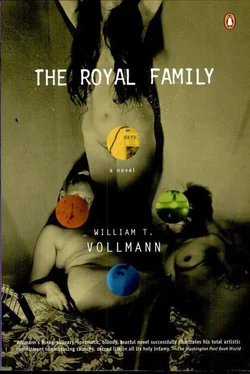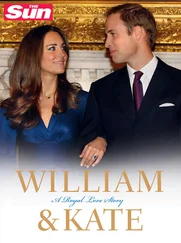I’ve prayed so much for you to get pregnant, Irene’s mother said in Korean. Children are a gift from God.
Irene made no answer.
Have you had good dreams? her mother pursued. If so, it’s going to be a boy…
But before the worst had happened, Irene’s womb continuing as yet unripe, her sister’s family came to visit. Steven and Pammy craved a vacation in Mendocino County, so they left their son in San Francisco for the weekend. — Of course! said Irene, brimming with enthusiasm in order to deacidify the impression conveyed by John’s sullenness. — Be a good boy now, Pammy instructed the child. Be obedient to your Auntie Irene and your Uncle John. — Bewildered, with big dark-framed spectacles, he sat playing video games as soundlessly as possible while Irene peeled garlic in the kitchen, wishing for more counter space, a larger refrigerator, and a dishwasher capable of more even results. Her nephew’s presence did not make her uneasy because at that time a child associated with her did not symbolize anything negative to John. Indeed, she smiled a little to herself, dreaming of how it would be when she had her own baby, her dear little soul which she could love without reserve, being no longer dependent on John’s moods for anything. Her smile became almost spitefully triumphant when she considered how plausible it would be when she ignored John as much as he’d ignored her throughout their married life; she could spend all afternoon bathing her baby and then take him out shopping, and when John came home there would be no dinner waiting; they’d have to go out. Of course, John enjoyed dining at restaurants anyhow. When the garlic was all finished, she washed her hands, wondering whether she should drive to the Korean market to buy short ribs, which she could marinate easily and well in vinegar, Coca Cola, sesame oil, and red pepper paste, or whether she could treat the boy to one of those restaurant meals she’d so slyly imagined. If John were too busy to imprison himself in such trivialities, she could always count on Henry to take her, probably to that stretch of Korean markets and restaurants on Geary between Eleventh and Tenth, with their signs in squat Hangul characters and their kiosks for the Korea Times (fifty cents a copy) — a district which would after her death and burial insistently murmur to Tyler of her, like a yellowjacket buzzing inside a seashell. — Laurel Heights, on the other hand, was John’s territory because near the former pioneer cemetery there now stood an unassuming liquor store to which John sometimes drove to buy cask strength Mortlach (eight-year-old, imported by Cadenhead’s for about eighty dollars a bottle). Once Tyler had made his own journey to the grave, who would remember him, and what place would they associate with him? No place, probably; he was nothing and stood for nothing, not even the Tenderloin. He might as well be homeless.
As it happened, Irene’s self-pitying bitterness proved to be unfounded, on this occasion at least, because John liked his nephew and tried to win him over with presents, remembering how when he and Hank were children their abandoned mother had worked so hard and remained so poor; there’d been many things John had craved then: new clean sneakers like his schoolfellows, T-shirts, a nice watch, a Green Hornet lunchbox. Even now, one of the ways to put John in a good mood (although Celia had not yet learned this, and Irene never would) was to give him toy trains — an infantile transaction, to be sure, but surely John in his own way needed to feel taken care of, his expensive neckties and professional ambition aiming not only at egotism but also at safety and ease. And so he took his nephew downtown to the F.A.O. Schwarz on Stockton and O’Farrell, right on the edge of the Tenderloin, and allowed him to choose a hundred dollars’ worth of toys. The child, however, who actually lacked for nothing, thanks to Steven’s income, remained with John at all times shy and mistrustful. He sensed in his uncle a hardened silence which only a tolerant and perceptive adult could have recognized as something damaged; the child experienced it as stern dislike. The pallor of his uncle’s skin alarmed him, too, and he seemed to give off a strange smell. When he sat on his Auntie Irene’s lap he felt less homesick, believing for as long as she held him that his mother and father would truly return in only one more day, whereas John with his unnerving gift of toys presented an alien distraction, indicative of a plot to make him forget his parents, who if he let them escape from memory for one instant would immediately cease forever to exist. Above all, he perceived in John the desire to possess him, and he would not be possessed. He would not be tricked.
After they had gone back to Los Angeles, John said: That kid liked you more than he did me.
Well, what do you expect? said Irene. He ought to like me better. I’m a blood relative. I’m his aunt. You’re just his uncle-in-law.
We don’t do things that way in my culture, John said. I love my aunt and uncle both the same. It doesn’t matter which one’s the blood relative.
You mean you hate them both the same, said Irene, waxing her eyebrows. When was the last time you sent them a postcard or called them up?
That has nothing to do with it.
It has everything to do with it. Anyway, you married a Korean. That’s how Koreans are. If you don’t like it, you can divorce me.
What a goddamned cold thing to say!
You heard me. If you don’t like the way I am, you can divorce me.
So you can marry Hank?
I think you should be grateful to Henry that he treats me so nice. Saves you the trouble.
Are you in love with him, Irene?
Excuse me, Irene said. I’m going to close the bathroom door now. I want to pee.
Sacramento was rainy and windy, then sunny and windy. The September cornfields, greenish-brown, had just begun to go, like a cyanotype exposure nudged by many many photons into its first perceptible color shift: a permanent image was forming on the paper just as death was settling on the cornfields. He sat in the living room of his mother’s house reading in the Bee about a father who stabbed his wife and warned the children that if they told he would kill them, too; then the father drove away, leaving them to wait for two weeks of obedient silence in the bedroom with the decomposing body. Violent death in and of itself retained little power to disturb Tyler’s already anxious ease, but the hiddenness of that family’s literally rotten secret reminded him of Irene’s suicide, whose threateningly garish message remained only half obscured, like some Chinese movie poster behind a grating. Irene had loved Hong Kong action films. He remembered the posters in those two Chinatown theaters; forcing his mind away from the dangerous, morbid image, the grinning teeth and red calligraphy of heart’s blood from his murdered heroine, he withdrew from the grating, struggling up from memory to optimistic convenience even though the way remained as steep as the street-slope at Powell and Sacramento Streets; now he couldn’t see that threatening poster anymore. It was a grey day in his skull’s San Francisco; Tyler drove up through Chinatown on that lackadaiscal, that torpid throughway appropriately called Sacramento; he couldn’t get away from Sacramento even though his purpose might be shaded by clouds and awnings. By the First Chinese Baptist Church on Waverly a lady was awkwardly carrying her child. She struggled a little way up the hill and stopped just past the Chinese Playground, panting. He gazed pleasurably upon a Chinese girl whose hair was as shiny as her little black car. Then the poster began blinking red and black, red and black behind his closed eyes, no matter how tightly he squeezed them — red and black, red and black: Irene’s blood, Irene’s hair. For a moment he thought he couldn’t stand it, but if he didn’t stand it then what would happen? — All right then, he said to himself. Here is the poster and I am looking at it. This is the movie which Irene wants to see. Irene takes my hand. I am afraid that one of John’s colleagues will notice, but at the same time I don’t care, or I guess I do care but I wouldn’t let go of her hand no matter who saw. I pay the cashier for two tickets. We go inside, and now the poster is behind us. I hold Irene’s hand so tightly that she can’t pull it away and leave me. We sit down in the row of seats, and with my right hand I reach across myself to take her right hand while my left arm goes happily around her neck. Irene loves me. Irene will never love me. I love Irene. I love you, Irene. Irene, please let me kiss your cunt.
Читать дальше












